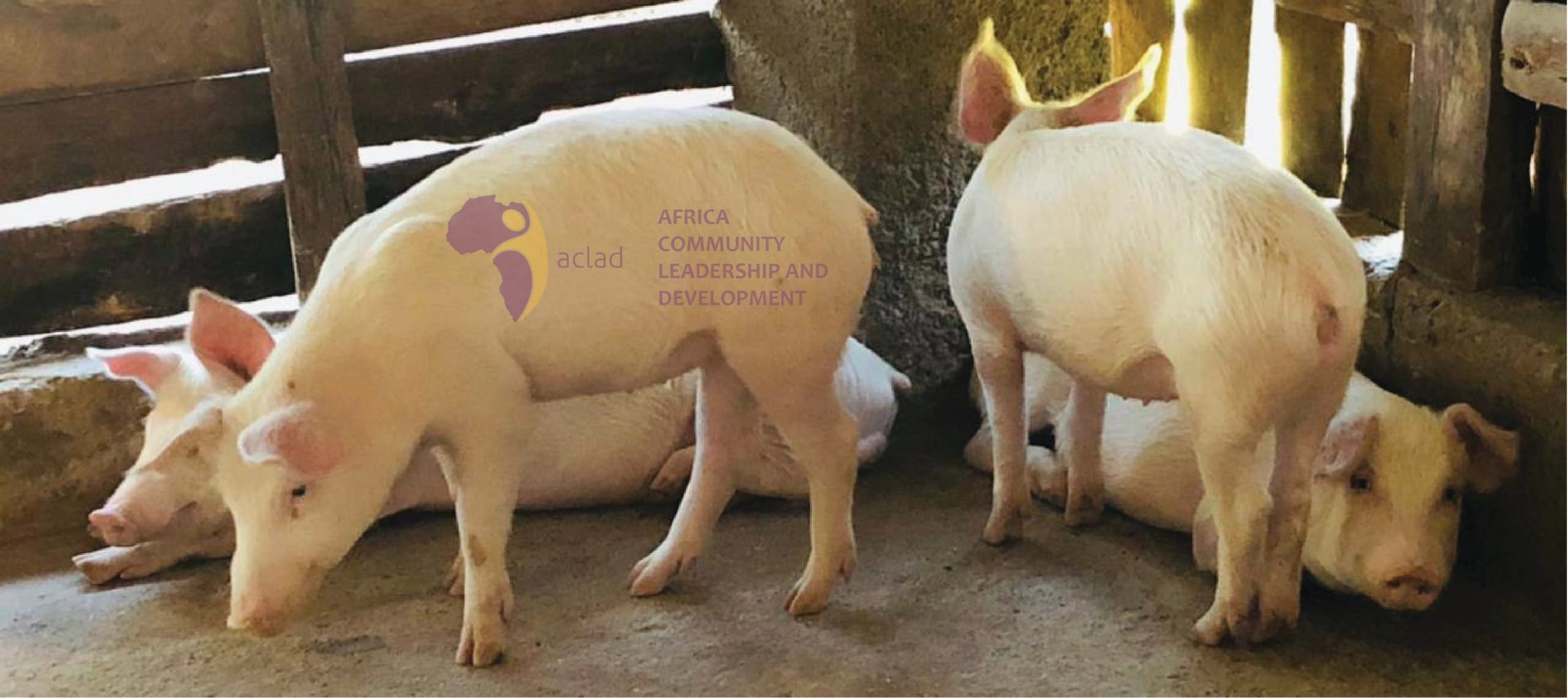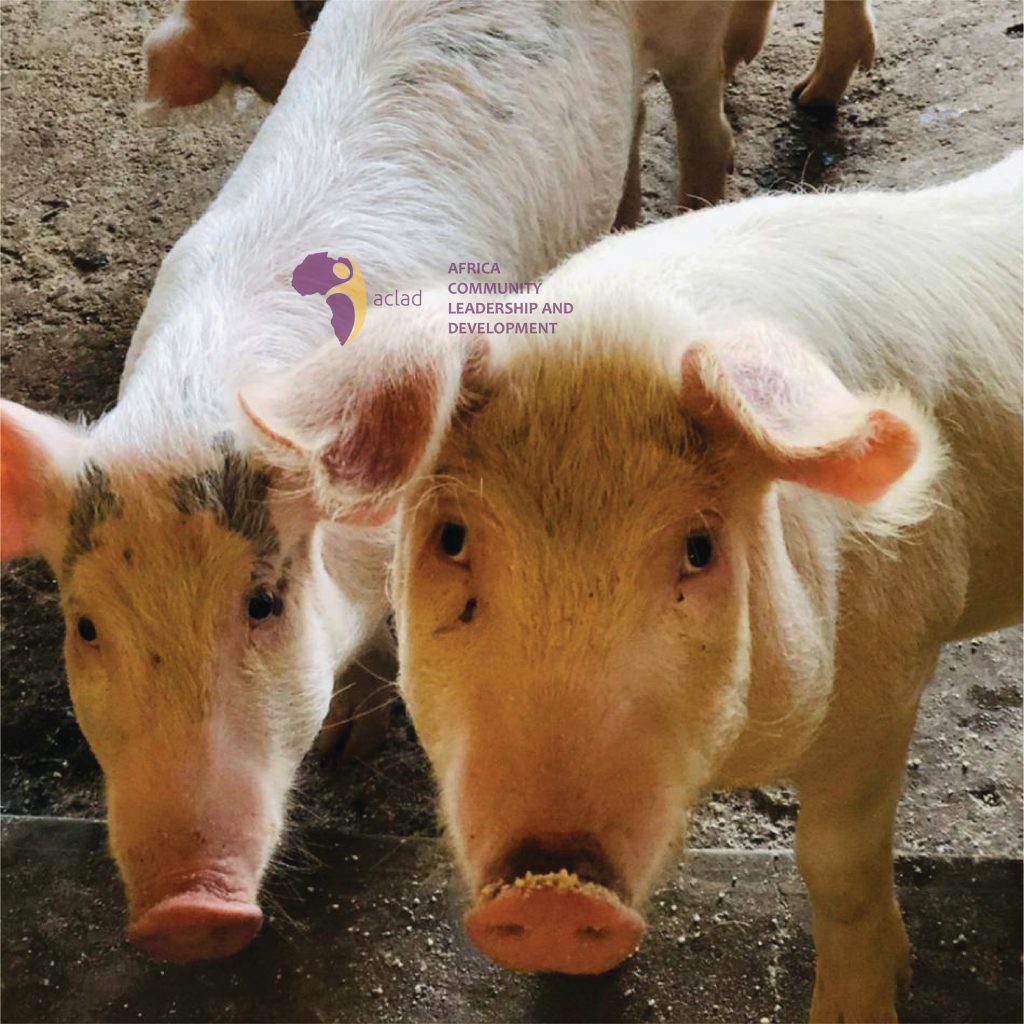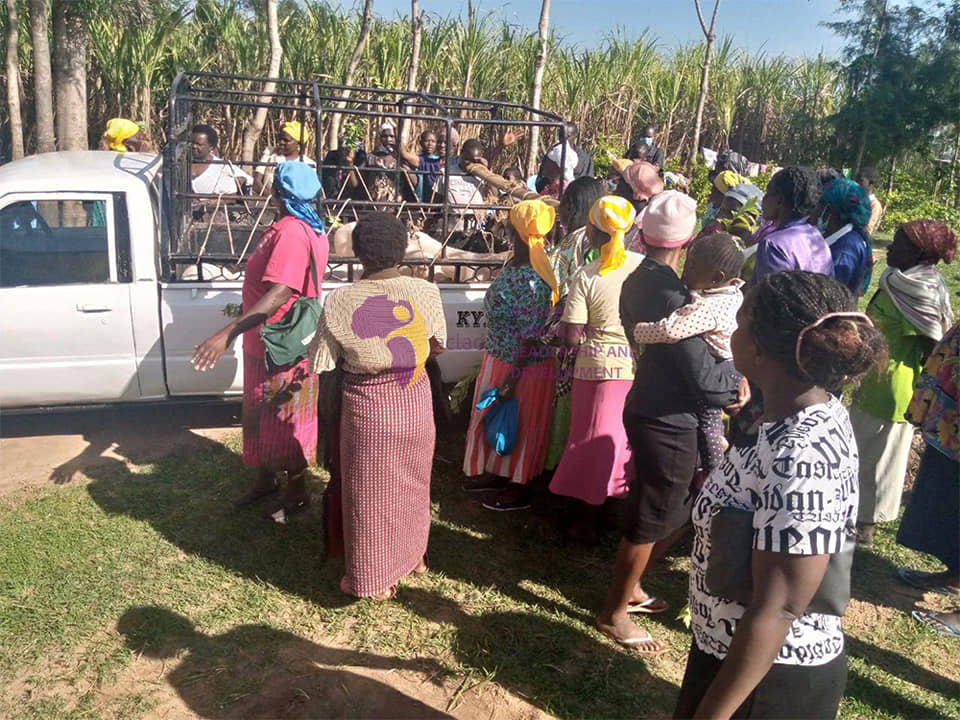Pigs-a gift that keeps giving!

According to the Food and Agriculture Organization (FAO)[1], agriculture is key to Kenya’s economy as it contributing 26 per cent of the Gross Domestic Product (GDP) and a further 27 per cent of GDP indirectly through linkages with other sectors. In addition, the sector employs more than 40 per cent of the total population and more than 70 per cent of Kenya’s rural people. This agriculture practiced in Kenya encompasses agronomy, horticulture, forestry, animal husbandry, fisheries and agricultural engineering. ACLAD is delighted to be engaged in animal husbandry for food security, nutrition and enhancing livelihoods.

In early April, we were able to complete phase one and two of providing pigs 12 pigs in total -four boars and eight sows- to community groups each having 25 members in Makuche in Kakamega County, Kenya. These members started their pig farming training in December 2020 and after established a piggery unit in one group members’ farm. The pig farming project will see that all members benefit from the project of enhancing their livelihoods and increase food security and nutrition at household level by getting two piglets after the pigs breed and multiply. The third group is being trained and preparing their piggery unit as they wait to receive their pigs. In addition to the groups receiving pigs, one of our sponsored households in Kakamega received two sows and a boar after they constructed a shelter for them.

In the last eight or so years, pig farmers in Kenya have gradually increased, making pig farming one of the top agribusiness ventures. Given the short gestation period for pigs-three months, three weeks and three days- and that sometimes they get no less than 10 piglets at a time means that the group members will quickly get their two piglets, and then grow their brood. There are several benefits to pig farming as it is a relatively easier enterprise as compared to other types of livestock keeping in Kenya such as chicken rearing and rabbit breeding. Pigs are reasonably easy to maintain as they feed on nearly all kitchen food waste, therefore in six to nine months, the piglets may have reached maturity and gained marketable weight. In addition to selling the piglets at maturity, pig manure can be sold separately for fertilizer production or fish food. Western Kenya is also favored by weather conditions that make it ideal for pig rearing. Pork has an indefinite demand in Kenya unlike other types of meat because of its nutritional content -high fat, low water content and enhanced energy value in addition to high levels of B vitamins – niacin, riboflavin and thiamine.
.
Catherine Muteithia
ACLAD Media Consultant
